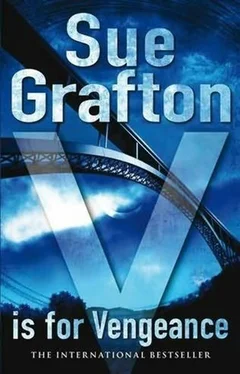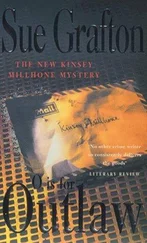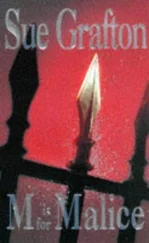“A man of talent,” I remarked.
“I’d reserve judgment if I were you.”
I waited while he closed the front door, then followed him into the kitchen with its bright yellow breakfast nook. He turned the gas up under the six-quart stockpot and took a bowl from the cabinet. “Have a seat. You want something to drink?”
“Tap water’s fine.”
“I’ll take care of it. You sit and relax.”
He put ice in a glass and filled it at the kitchen sink. He took out a paper napkin and a soup spoon, then ladled soup into a bowl, which he carried gingerly from the stove with a shy smile. He seemed happy to have company. In the center of the table he’d put a jumble of wildflowers in a jar, and I had the sudden sense of what a nurturing man he was. I felt badly about Audrey’s deceit. He deserved better.
The soup was rich and dense. “This is wonderful,” I said.
“Thanks. It’s a specialty of mine, just about the only one I have.”
“Well, it’s a good one,” I said. “Do you bake?”
“Biscuits, but that’s it.”
“I’ll have to introduce you to my landlord, Henry. He’s William’s younger brother. I suspect the two of you would have lots to talk about.”
When I’d eaten, Marvin insisted that I sit while he washed the dishes and set them in the rack.
I filled him in on my visit to Audrey’s house in San Luis. “You could have made the trip yourself,” I said. “I know you were worried about the impact, but there were no surprises. The place was bare.”
“Was it nice?”
“Nice? No, it was a dump. Small wonder Audrey liked living with you.”
“What about an address book? Any sign of it?”
“There was nothing personal at all.”
“That seems odd,” he said. “Hang on a minute and I’ll go get the phone bills.”
He left the kitchen and returned moments later with a file folder that he placed on the table in front of me. “I hope you don’t mind but I went over them myself. This past month, she made two calls to Los Angeles; three to Corpus Christi, Texas; and one to Miami, Florida. Same thing in January and February. If there were other calls, they must have been in the 805 area code.”
“Too bad.” I ran an eye down the list of numbers. Marvin had put a checkmark beside calls he ascribed to her. “Have you tried calling these?” I asked.
“I thought I’d leave it to you. I’m not that good at thinking on my feet. I get rattled and no telling what I’d blurt out. You want to use my phone?”
“Sure. As long as I’m here.”
“Have at it,” he said, indicating the wall-mounted phone.
I stood and reached for the handset, tucking it between my shoulder and my ear. I held the phone bill with my thumb close to the first mark he’d made. I punched in the number in the 213 area code. After three rings, I was treated to an ear-splitting screech, followed by a mechanical voice telling me the number was a disconnect: “If you feel you have received this recording in error, please hang up, check the number, and dial again.”
“Disconnect,” I said.
I tried the number again with the same result. The second Los Angeles number was also no longer in service. I dutifully tried a second time to be sure I was dialing correctly. Same dead end. “This is informative,” I said. I zeroed in on the Miami call and punched in those numbers. When the screeching began again, I held out the handset so Marvin could hear. The number in Corpus Christi rang twenty-two times by my count but no one answered. I hung up and sat down again, putting my chin in my hand.
“So now what?” he asked.
“I’m not sure. Let me think about it for a minute.”
He shrugged. “The way I see it, we’ve got nothing.”
“Shhh!”
“Sorry.”
Marvin returned to his seat. He was on the verge of saying something else, but I held up a hand like an auditory traffic cop. In my mind, I was running through index cards in rapid succession. We still had no address book and no appointment calendar. The numbers she’d called in the past few months were useless at this point. If I’d had access to Polk directories for Corpus Christi or Miami, I might have been able to backtrack from the phone numbers to the relevant street addresses. Checking those addresses, even if I had them, would have meant making the trip myself or hiring private investigators in Texas and Florida to cover the job for me. Both options were expensive and might not have netted us anything. If the phones had been shut down, the target locations had probably been shut down as well.
This is what I knew: Audrey had reason to spend the night in San Luis Obispo on an average of twice a month. During her stays, she made use of a house in an isolated area where, with the exception of her neighbor, her privacy was guaranteed. What she did in that house entailed the use of a table big enough to seat ten, a pantry full of oversize canned goods, and skillets and saucepans sufficient to feed any number of visitors. Vivian Hewitt said she’d seen a van and a white panel truck pull into Audrey’s drive from time to time, but she’d never seen anyone going into Audrey’s house. This suggested that her visitors came and went by way of the back door, which wasn’t visible from her neighbor’s vantage point. Vivian had also told me that on nights when the lights were on late, Audrey made a point of closing her venetian blinds.
I’d thought at first Audrey was the one busy covering her tracks. The problem was she’d been dead since Sunday, and I didn’t see how she could have done such a thorough job in the brief period between her arrest and her going off the bridge. This was Thursday and the house in San Luis had been stripped of personal items and all of the surfaces wiped down. When had she found the time? Vivian Hewitt claimed someone had been there Sunday or Monday night. Clearly, it wasn’t Audrey.
I looked down at the phone bill. Of four phone numbers she’d called, three had been disconnected. Someone was sweeping up in the wake of her death, shutting down all the links, eradicating evidence. The only thing I’d spied with my little eye were the two snippets of clear plastic. I met Marvin’s gaze.
He said, “What?”
“I did find these.” I held up a finger, alerting him to my find while I slid a hand into my pocket and pulled out the two clear plastic stems. “What do these look like to you?”
“The little doodads they use to secure price tags to clothes in department stores.”
“Right. You know what I think was going on? Twice a month Audrey met with her crew and they sat around the table clipping tags out of all the garments they’d stolen. I don’t know what happened to the goods afterward or what happened to the crew, but once she died, someone got busy dismantling the operation.”
“So now what?”
“I think I started in the wrong place. There’s no point investigating Audrey. She’s gone. It’s the younger woman we need. I’m still mad at myself for not catching her license plate.”
“Yeah, too bad you don’t have a time machine. You could whiz back to the parking garage and take another look.”
I felt a small mental jolt. My mouth didn’t actually drop open, but that was the sensation I experienced. “Oh, wow. Thanks for saying that. I just came up with an idea.”
DANTE
Late Thursday afternoon Dante finally caught up with his brother. When he left the office, Tomasso and Hubert were waiting in the parking garage, the limousine idling. As he emerged from the elevator, Cappi came around the corner, apparently on his way up. Dante saw him first and he was already in motion when Cappi realized what was coming down. He stumbled backward, arms flailing as he tried to put himself beyond Dante’s reach. He pivoted and he’d made it four steps when Dante tackled him from behind, both men going down with a grunt. Dante scrambled to right himself and grabbed Cappi by the front of the shirt. He hauled him to his feet in one move and jammed him against the wall. Both were breathing hard, Cappi trying to loosen Dante’s grip. Dante had fifty pounds on his younger brother and even with the age difference, he was in far better shape.
Читать дальше












